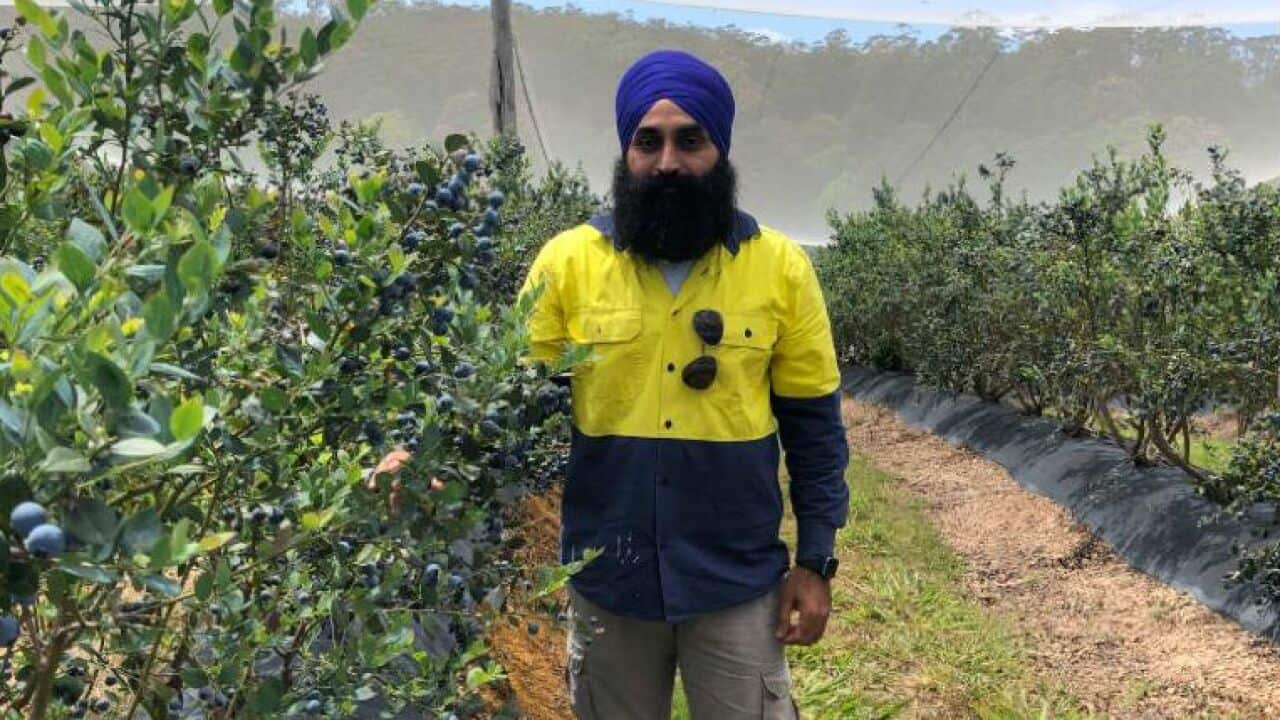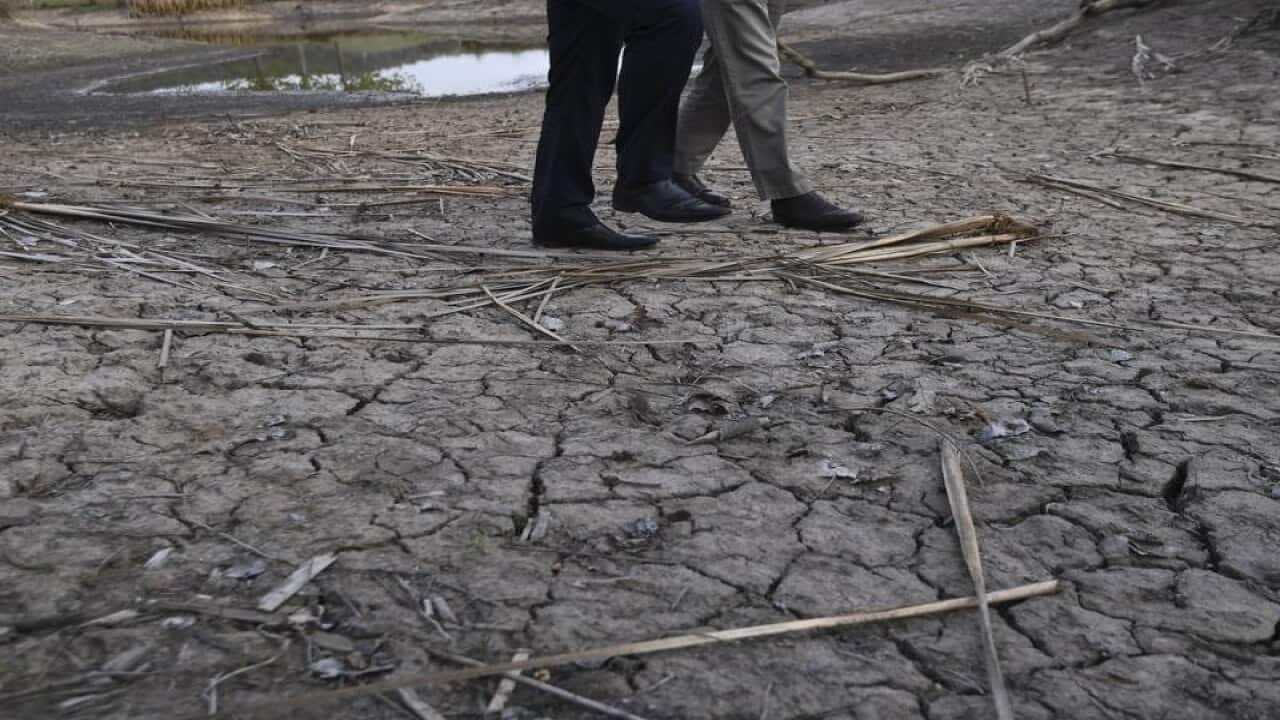For over half-a-century, Punjabi farmers in Coffs Harbour - Woolgoolga area have bolstered the local economy, first growing bananas and then some switching to blueberry since the turn of the century.
However, the burgeoning community of Sikh farmers on New South Wales’ Mid-North Coast is no longer untouched by the drought – the worst in over 50 years – and is now fearing a further decline in production if it doesn’t rain soon.
“The last significant rain that could recharge our dams was in December last year. Since then, we have only had a little bit of rain,” Lucky Sahota, a local blueberry farmer says.  Mr Sahota who started growing the fruit on just 5 acres in 2005, now has over 60,000 blueberry plants on his 50-acre farm near Woolgoolga.
Mr Sahota who started growing the fruit on just 5 acres in 2005, now has over 60,000 blueberry plants on his 50-acre farm near Woolgoolga.

Source: Supplied
The area that produces 80 percent of Australia’s blueberry crop normally receives good amount of rain in October and November. But this October hasn’t been as wet.
“We had some rain last week and it’s some relief. But it’s nowhere near normal. And there’s no rain forecast for the next two weeks,” Mr Sahota says.
He is worried about the next crop yield that is due to start by the end of November.
“The rain makes a lot of difference to the size of the fruit. Without sufficient water, the size of the fruit remains small and it causes the picking cost to go up and packaging cost goes up too,” he says.
“Our dams are all but dry and we are now just looking towards the sky and hope it rains.” Local state MP Gurmesh Singh, himself a farmer, says while blueberry isn’t a water-intensive crop, it still needs good amount of rain.
Local state MP Gurmesh Singh, himself a farmer, says while blueberry isn’t a water-intensive crop, it still needs good amount of rain.

Dam on Mr Sahota's farm Source: Supplied
“It’s nearly a year since the area received significant rainfall. The normal rainfall that we get from March to June, we didn’t have any of it this time,” he told SBS Punjabi.
Mr Singh says the greenery of the area belied the struggle of the farmers which he feared would exacerbate if the rain continued to elude them.
“At the moment we are getting by, we have drinking water and there’s some water left in the dams but if we don’t get heavy rains by December, this area will be like further west where it hasn’t rained for many years now,” he said.
Readers seeking mental health support can contact:
Lifeline 13 11 14
Beyondblue 1300 22 4636
Farmer Assitance Hotline 132 316
How can I help?
Farmers seeking drought assistance can contact these organisations:







